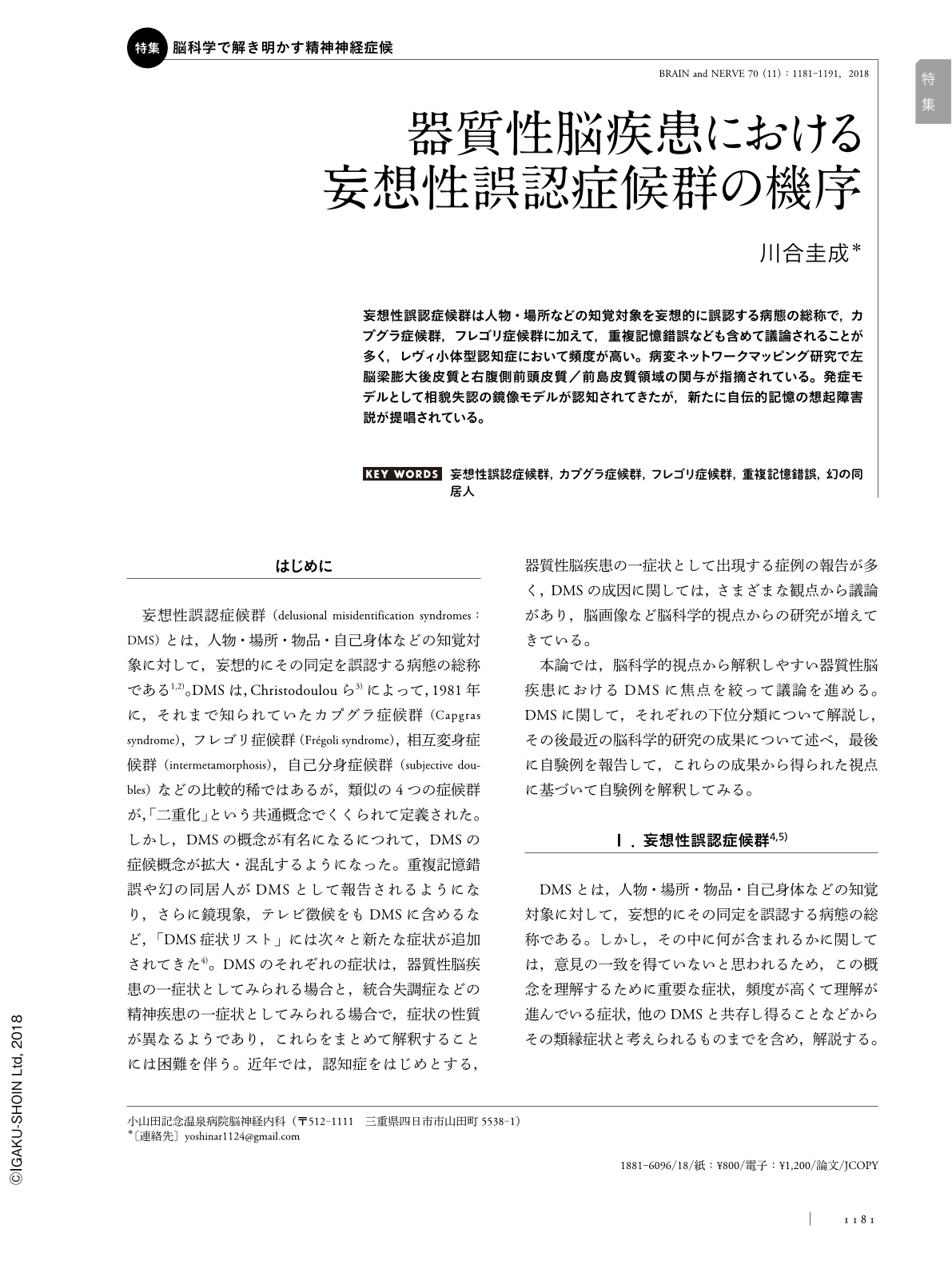Japanese
English
- 有料閲覧
- Abstract 文献概要
- 1ページ目 Look Inside
- 参考文献 Reference
妄想性誤認症候群は人物・場所などの知覚対象を妄想的に誤認する病態の総称で,カプグラ症候群,フレゴリ症候群に加えて,重複記憶錯誤なども含めて議論されることが多く,レヴィ小体型認知症において頻度が高い。病変ネットワークマッピング研究で左脳梁膨大後皮質と右腹側前頭皮質/前島皮質領域の関与が指摘されている。発症モデルとして相貌失認の鏡像モデルが認知されてきたが,新たに自伝的記憶の想起障害説が提唱されている。
Abstract
Delusional misidentification syndromes (DMSs) are a fascinating group of disorders involving a fixed, false belief about the identity of persons, places, and objects in one's environment. DMSs include Capgras syndrome, Frégoli syndrome, intermetamorphosis, the syndrome of subjective doubles, and reduplicative paramnesia. Although DMSs have been described in patients with focal neurological lesions, they are more commonly associated with neurodegenerative diseases, specifically dementia with Lewy bodies. Lesion network mapping was used to identify brain regions functionally connected to the lesion locations in patients with lesion-induced DMSs. The left retrosplenial cortex and the right ventral frontal cortex/anterior insula were functionally connected to almost all lesion locations. In a model of Capgras symptom as a mirror of prosopagnosia, there are two routes of visual recognition; one covert and one overt. Capgras symptom represents an interruption to the covert route with an intact overt route. This model, however, does not explain other DMSs. Therefore, propose a new model where the delusional belief content in DMSs results from dysfunctional linking between externally perceived objects and appropriately retrieved internal autobiographical memories associated with an object.

Copyright © 2018, Igaku-Shoin Ltd. All rights reserved.


